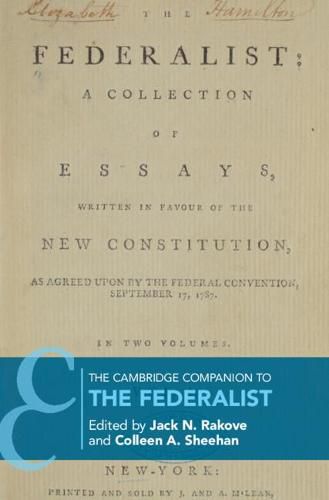Readings Newsletter
Become a Readings Member to make your shopping experience even easier.
Sign in or sign up for free!
You’re not far away from qualifying for FREE standard shipping within Australia
You’ve qualified for FREE standard shipping within Australia
The cart is loading…






The eighty-five Federalist essays written by Alexander Hamilton, John Jay, and James Madison as ‘Publius’ to support the ratification of the Constitution in 1787-88 are regarded as the preeminent American contribution to Western political theory. Recently, there have been major developments in scholarship on the Revolutionary and Founding era as well as increased public interest in constitutional matters that make this a propitious moment to reflect on the contributions and complexity of The Federalist. This volume of specially commissioned essays covers the broad scope of ‘Publius’ work, including historical, political, philosophical, juridical, and moral dimensions. In so doing, they bring the design and arguments of the text into focus for twenty-first century scholars, students, and citizens and show how these diverse treatments of The Federalist are associated with an array of substantive political and constitutional perspectives in our own time.
$9.00 standard shipping within Australia
FREE standard shipping within Australia for orders over $100.00
Express & International shipping calculated at checkout
The eighty-five Federalist essays written by Alexander Hamilton, John Jay, and James Madison as ‘Publius’ to support the ratification of the Constitution in 1787-88 are regarded as the preeminent American contribution to Western political theory. Recently, there have been major developments in scholarship on the Revolutionary and Founding era as well as increased public interest in constitutional matters that make this a propitious moment to reflect on the contributions and complexity of The Federalist. This volume of specially commissioned essays covers the broad scope of ‘Publius’ work, including historical, political, philosophical, juridical, and moral dimensions. In so doing, they bring the design and arguments of the text into focus for twenty-first century scholars, students, and citizens and show how these diverse treatments of The Federalist are associated with an array of substantive political and constitutional perspectives in our own time.